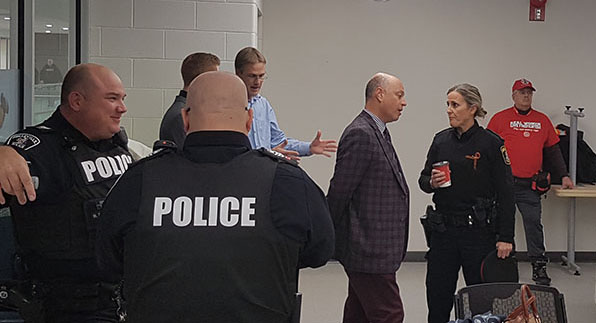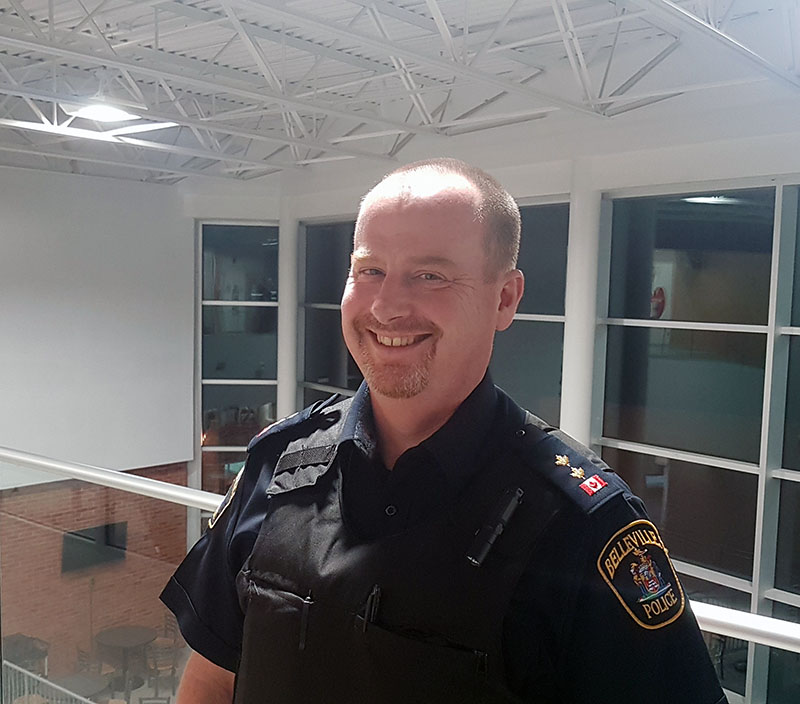Belleville police invite community for input on safety plan

Mayor-elect Mitch Panciuk (centre, speaking with Insp. Sheri Meeks) was among the attendees at the police town hall meeting Tuesday at the Quinte Sports and Wellness Centre. Photo by Ludwick Chapman, QNet News
BELLEVILLE – The Belleville Police Service invited the community on Tuesday night to give their input for the police department’s new community safety plan, which will serve as a guideline to what the police need to focus on for the next three years.
Around 30 people showed up to the second-floor meeting room at the Quinte Sports and Wellness Centre to view the results of a public survey conducted with the Loyalist journalism program, and to give their thoughts to the police.

Insp. Chris Barry, who has been with the Belleville police for over 20 years, says the department’s way of gathering information from the public has evolved in a good way. Photo by Ludwick Chapman, QNet News
Insp. Chris Barry, who was heavily involved with the project, said the surveys and town hall meetings with citizens together will help make Belleville a safer place.
“In our last community safety plan, we just did (a) phone survey – we didn’t do this face-to-face survey with the help of the journalism students from Loyalist. That’s how we progress – we start to see that maybe we were lacking in this area (and) we need to bump it up here to get a better picture of what’s going on.”
Det. Joseph Yanch, a member of the police department’s drugs and intelligence unit, said he hopes events like the public meeting will help make the public aware that the drug trade is prevalent in the area.
“I don’t think a lot of people see that, because in certain communities and certain demographics you don’t get the drug trade. But it’s prevalent and it’s here,” Yanch said.
The dangerous opioid fentanyl “is a real issue here,” he added. “As much as people pretend to not think it is, we have fentanyl in large quantities.”
Crimes such as assault and theft are connected to drug trafficking, Yanch added.
“These are all committed usually by people with mental-health issues, but also (people) who are down and out and need their fix. And they’re committing these offences to get a quick buck.”
According to the Maclean’s Crime Severity Index, Belleville’s crime rate decreased from 2017 to 2018. However, the index points out that Belleville’s assault and breaking and entering rates still rank above the Canadian average.
Police Chief Ron Gignac said these problems are already in the police department’s strategic focus thanks to the input the police have received from the public. Thanks to programs to educate people on the consequences of assaults and thefts, these numbers will continue to go down, he said.
“Assault is one thing that if you educate more people on the ramifications of assaulting another person … maybe they say, ‘The next time, maybe I’m not going to do that. Even if it feels good to do it, I’m going to have some self-control here.’ “
 Print This Post
Print This Post






